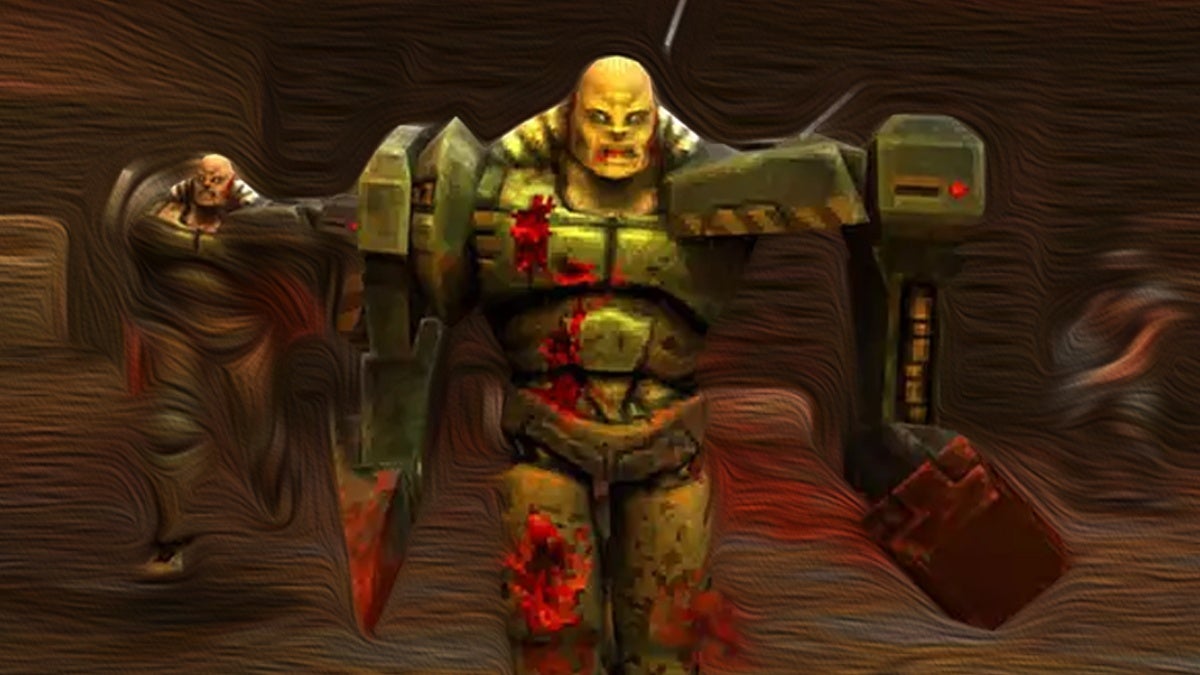Earlier this month, Microsoft set loose upon the world a new, publicly-available demo of its video game-focused generative AI model, Muse. As far as demos go, it was a significant one: a playable, browser-based “AI rendition” of legendary first-person shooter Quake 2.
But rather than landing as, say, an impressive demonstration of Microsoft’s bounding progress in artificial intelligence, the Quake 2 “Copilot gaming experience” was widely slammed by the gaming public as, amongst many other things, “shit”.
The criticism has been more or less universal, ranging from members of the public describing it as “absolutely fucking disgusting” and “like horrible Nyquil-induced sleep paralysis”, to a Forbes “review” of the game that called it “an abomination”. Members of the games press condemned reporting in The Verge, which ran the headline “Microsoft has created an AI-generated version of Quake”, as overly credulous, labelling any similar coverage as “unpaid PR work”.
Will Smith, a tech blogger, offered a more measured response but still concluded that it is ultimately “a gimmick. It’s interactive video, and yeah, I guess that’s impressive, but it doesn’t capture the magic of interlocking systems that still makes playing Quake 2 fun in 2025, despite the fact that it’s almost 30 years old and dates to the earliest days of 3D graphics.”
All of this comes just a couple of weeks after Microsoft’s initial reveal of Muse itself, which that time featured non-interactive but similarly murky footage based on Ninja Theory’s Bleeding Edge – and which received a similarly heated response.
That first unveiling also came with further issues of its own. Reactions zeroed in on the notion of Muse being used for “gameplay ideation” in particular, as well as Xbox chief Phil Spencer’s seemingly outlandish claim, in an accompanying video, that Muse could “radically change how we preserve and experience classic games in the future,” making older games compatible with “any device”.
There is intense scepticism towards what Muse AI does, what it could do, and whether it could ever be useful for anything.
It was a messy reveal. At the time, we clarified – with the help of AI expert Dr Michael Cook – that Muse very much was not “creating games”. As Cook laid out in his blog, the research paper Microsoft had published in Nature alongside the reveal of this model “is not really about ‘generating gameplay’ or ‘ideas’,” but is instead, “about these researchers thinking about the implications of how people will work with these tools.” But that didn’t mean there weren’t plenty of limitations and concerns. On Spencer’s comments on preservation, for instance, Cook noted: “I could ask my friend’s five-year-old son to draw a crayon picture of what he thinks the ending cutscene of Final Fantasy 8 looks like and that would still count as game preservation of a certain sort.”
